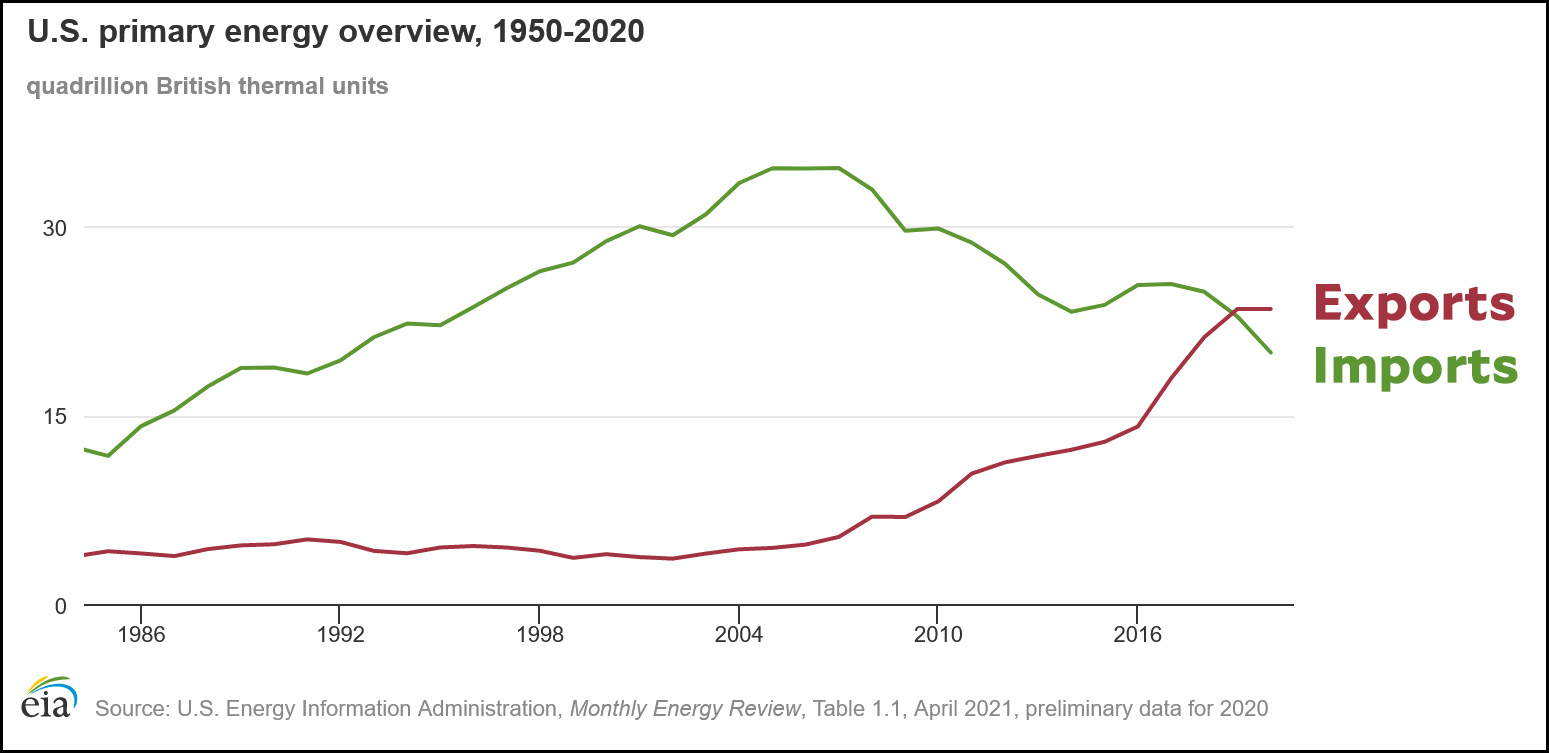Nikki Haley has some advice for us:
We need to become energy independent and we need to do it now.
— Nikki Haley (@NikkiHaley) February 28, 2022
As it happens, we're already energy independent:
 We continue to import about a fifth of our energy for reasons of convenience and geopolitics, but we don't have to. We produce all the energy we need right here at home.
We continue to import about a fifth of our energy for reasons of convenience and geopolitics, but we don't have to. We produce all the energy we need right here at home.
But put that aside for a moment. Does this newfound desire among Republicans mean that they'll start supporting solar and wind? Or merely more nuclear and more drilling in national parks? I've long thought that the only way to get Republicans to go along with subsidizing renewable energy was to somehow make it into a jingoistic national security issue, and this is the first chance we've had to do this.
I don't suppose it will work, but this is the time for a big campaign that emphasizes (a) anti-Russian themes and (b) battery storage to get around the idiotic "solar doesn't work at night/wind doesn't always blow" nonsense. Perhaps the message is that it's not enough for us to be energy independent. We need to help Europe become energy independent too as a way of punishing Putin.
My guess is that this won't work and we'll just be hearing a lot more "Drill Baby Drill" from Haley and her fellow Republicans. But it's worth a try, even if jingoistic appeals aren't your cup of tea.


